After the suicide of Sylvia Plath in 1963, many of the writer's fans called her husband Ted Hughes a "murderer," blaming his affair with Assia Wevill for causing the deterioration of Plath's mental health.
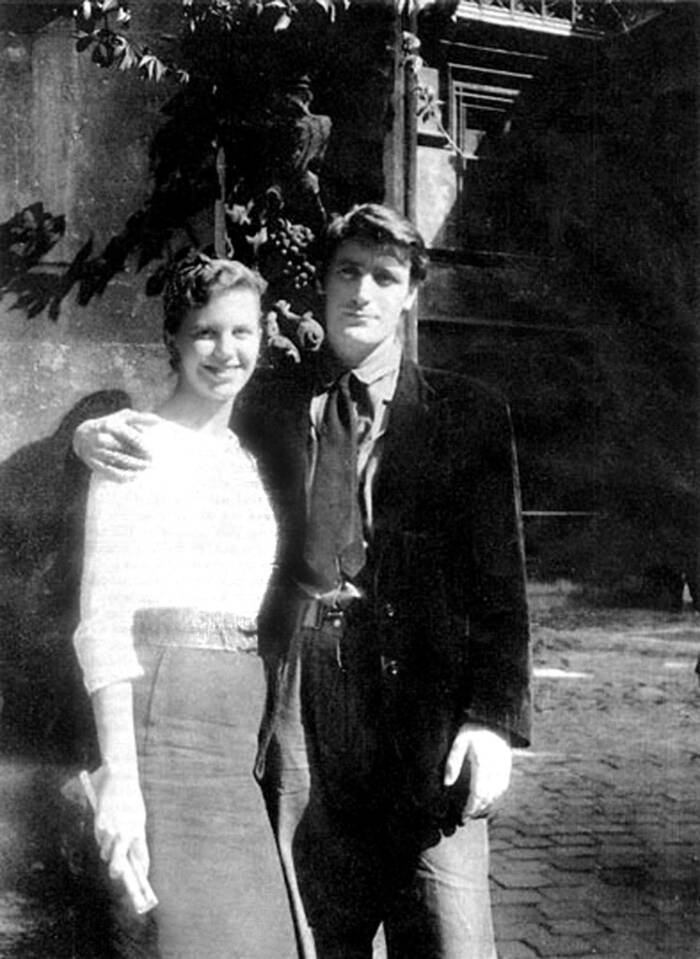
Everett Collection Inc / Alamy Stock PhotoSylvia Plath and Ted Hughes on their honeymoon in Paris in 1956.
Ted Hughes is a famous — and somewhat controversial — name in the world of poetry.
He published several best-selling volumes of his work, edited renowned anthologies, and even wrote children’s books. The Iron Man, which was printed in 1968, was adapted into the animated film The Iron Giant in 1999.
From 1984 to his death in 1998, Hughes served as Britain’s Poet Laureate, and he was also appointed to the renowned Order of Merit. However, his career almost came to an untimely end in the 1960s after the suicide of his wife, Sylvia Plath.
Hughes and Plath wed in 1956, but by 1962, he’d entered into an affair with fellow writer Assia Wevill. Plath took her own life the following year, and allegations soon emerged that Hughes had abused Plath. Hughes also faced criticism for destroying Plath’s final diary, with her fans accusing him of censorship. This controversy would follow Hughes throughout the rest of his life.
How Ted Hughes’ Early Years Impacted His Work
Edward James Hughes was born on August 17, 1930, in Mytholmroyd, a village in Yorkshire, England. His mother, Edith, was a tailor, and his father, William Henry Hughes, was a woodworker.
As a child, Ted Hughes enjoyed fishing, hunting, and spending time exploring the outdoors with his family. He would later state that his first six years of life “shaped everything.” Indeed, many of his poems center on nature and animals, including his debut collection, The Hawk in the Rain.
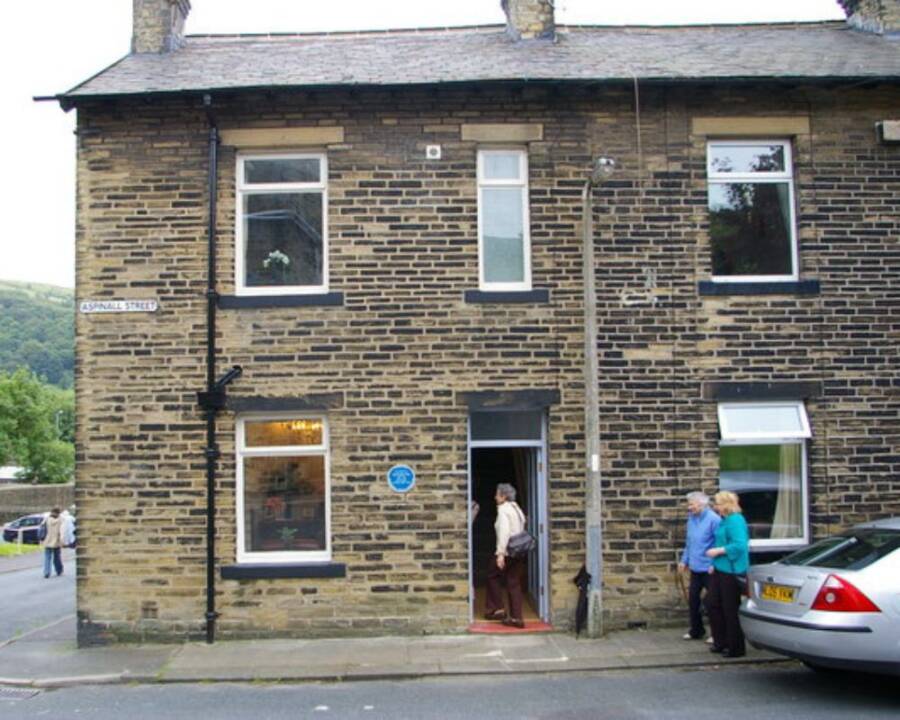
Phil Champion/Wikimedia CommonsThe birthplace of Ted Hughes in Mytholmroyd, Yorkshire.
By the time Hughes was 16, he knew that he wanted to be a poet. He was inspired by the works of Gerard Manley Hopkins and T.S. Eliot, and his teachers encouraged his passion. One of his first poems, “Wild West,” was published in his grammar school’s magazine in 1946.
Between 1949 and 1951, Hughes carried out his national service. He was assigned to an isolated ground wireless station as a mechanic, where he once said that he had nothing to do besides “read and reread Shakespeare and watch the grass grow,” as reported in his 1998 obituary in The New York Times. His love of poetry only grew during this time, and when he finished his service, he enrolled at Cambridge’s Pembroke College to study English.
Falling In Love With Sylvia Plath
Hughes did not enjoy his time studying English or writing in an academic setting. He even switched his degree to anthropology and archaeology in his third year at university. He graduated in 1954 and took various jobs, including as a gardener and a nightwatchman.
He had a couple of poems published in small literary magazines during this time, and he and his friends launched their own short-lived poetry journal, St. Botolph’s Review. It was at the launch party for this publication in February 1956 that Ted Hughes first met Sylvia Plath. At the time, she was studying at Cambridge on a Fulbright Program scholarship.
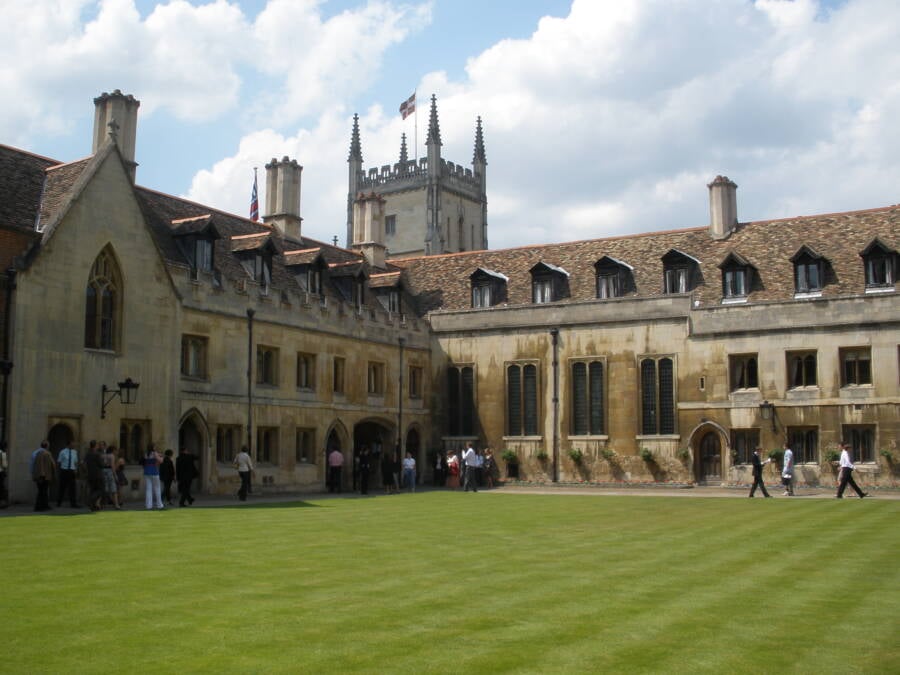
Monsarc/Wikimedia CommonsTed Hughes graduated from Pembroke College at Cambridge, where he and Sylvia Plath met in 1956.
They quickly fell in love, and they were married just four months later, on June 16, 1956. The first years of their marriage were reportedly happy, and they supported each other’s writing careers. Plath encouraged Hughes to submit his first manuscript, The Hawk in the Rain, to a contest — and it won. The poetry collection was published in 1957 to critical acclaim, launching Hughes’ career.
His next prize-winning collection, Lupercal, was published in 1960, and it won the coveted Hawthornden Prize. Hughes and Plath welcomed their first child, Frieda, the same year, and their son Nicholas two years later.
Soon after Nicholas was born, however, Plath discovered that Hughes was having an affair with German-Israeli poet Assia Wevill. They separated that fall — and Sylvia Plath died by suicide just a few months later, on Feb. 11, 1963.
Accusations Haunted Ted Hughes After Sylvia Plath’s Suicide
In the wake of Plath’s death, controversy erupted surrounding Hughes and his alleged treatment of his wife throughout their marriage. Plath’s fans thought it was suspicious that Hughes had destroyed Plath’s final diary and accused him of abuse and censorship. Hughes stated that he’d simply wanted to protect his children. Letters written by Plath in 1960 and 1963, which weren’t uncovered until more than 50 years after her death, also stated that Hughes had physically abused her.
Plath’s supporters went as far as to vandalize her gravestone, chiseling out the name “Hughes.”
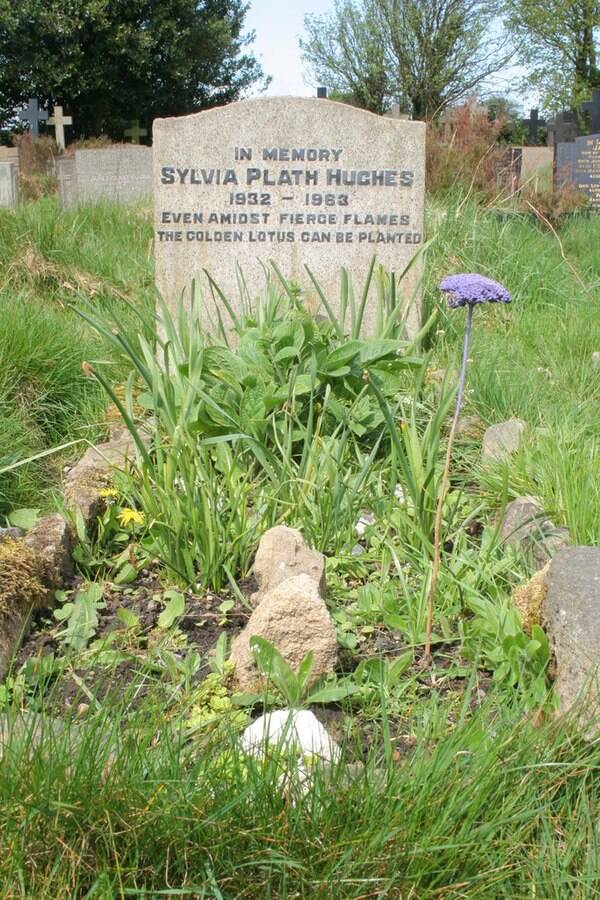
Mark Anderson/Wikimedia CommonsSylvia Plath’s grave in Heptonstall, West Yorkshire.
It didn’t help that Hughes maintained his relationship with Wevill. They welcomed a daughter, Shura, in 1965. Four years later, Wevill took her own life the exact same way Plath had, by sticking her head in a gas oven. She killed four-year-old Shura, too.
For years, Hughes refused to talk about his marriage to Plath. He published some of her work posthumously, including Ariel, her second poetry collection. However, he didn’t write poetry himself again for several years.
Hughes wed again in 1970 to Carol Orchard, and he set up a publishing company with his sister the following year. Over the remainder of his career, he wrote more than a dozen more collections, edited anthologies, and published a few short stories and children’s books.
And in 1984, he was named Britain’s Poet Laureate. However, controversy still followed him — and in 1998, he finally spoke out.
The Final Confessions Of The Poet Laureate
Ted Hughes’ final poetry collection, published in 1998, was titled Birthday Letters. The poems inside reflected on his relationship with Sylvia Plath, from their happiest times to his behavior at the end of their marriage. The book quickly rose to the top of best-seller lists and won several notable awards.
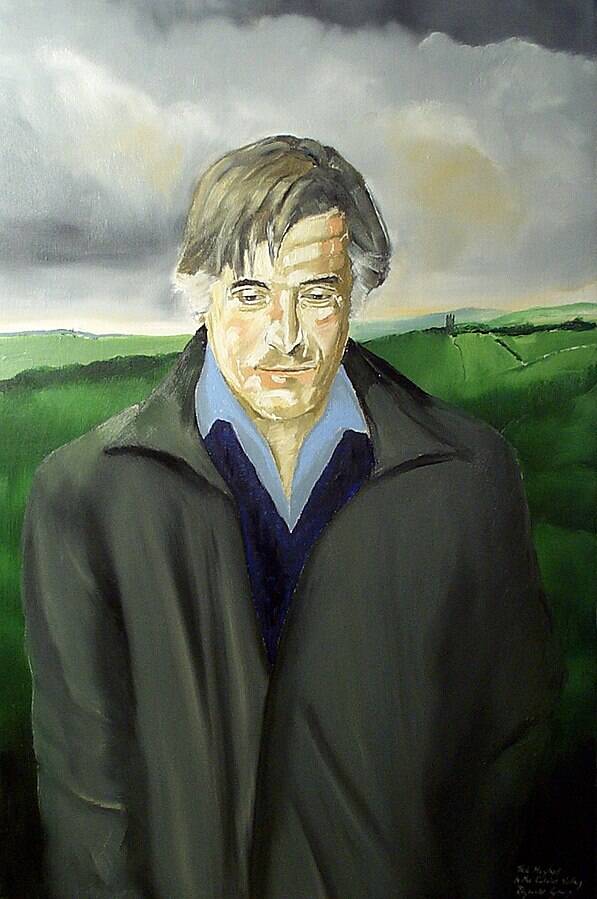
Public DomainA 2004 painting by Reginald Gray titled “Homage to Ted Hughes.”
Not long after Birthday Letters was released, on Oct. 28, 1998, Hughes died from a heart attack at age 68 while undergoing cancer treatment. Four months later, Hughes and Plath’s son, Nicholas Hughes, died by suicide. He was just 47.
Despite the turmoil that surrounded Ted Hughes’ reputation, his work continues to be popular and influential. There is a memorial dedicated to him in the Poets’ Corner of Westminster Abbey, where he takes his place among literary greats like Charles Dickens, John Keats, and Williams Wordsworth.
After reading about the life of Ted Hughes, the husband of Sylvia Plath, learn about Wilfred Owen, the soldier who wrote powerful poems about World War I. Then, scroll through these 15 facts about literary legend Kurt Vonnegut.





